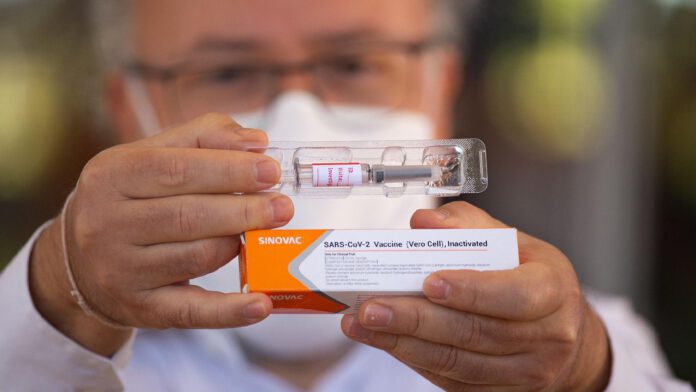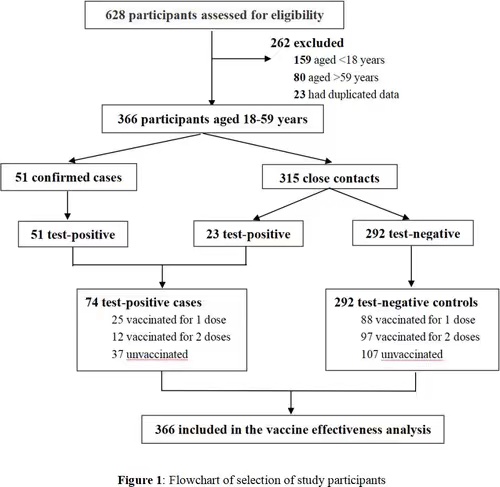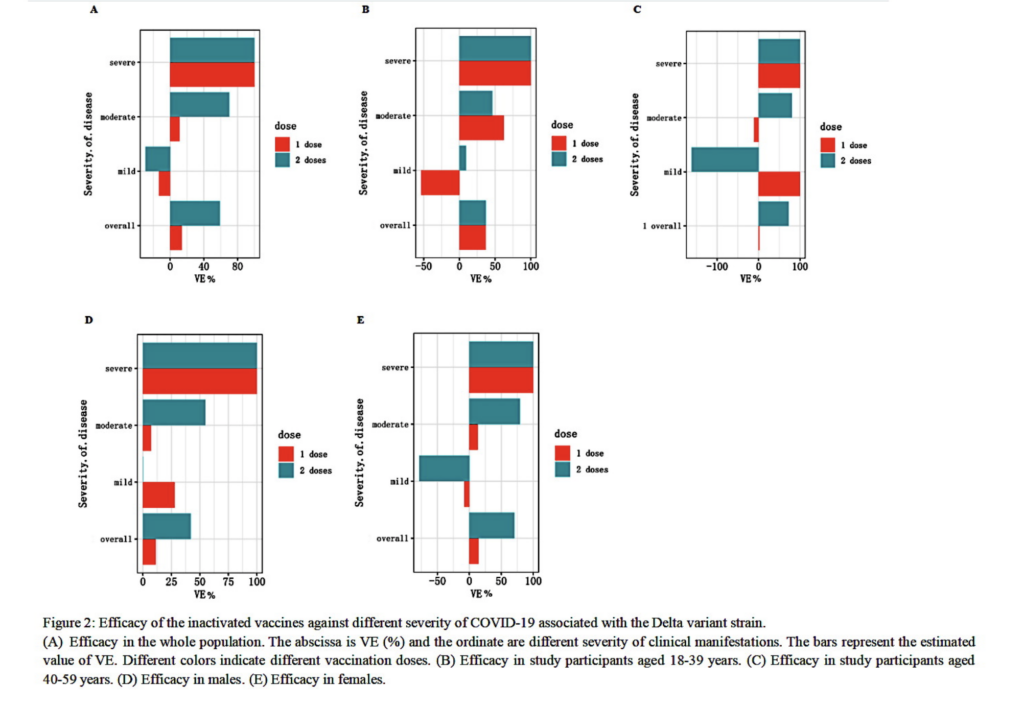
In the face of frequent epidemics in the world, many companies have developed a variety of COVID-19 vaccines such as inactivated vaccines, recombinant protein vaccines, adenovirus vector vaccines, and DNA vaccines.
Previously, the World Health Organization stated that the vaccinable COVID-19 vaccines need to have a protective effect more than 50%, and these developed vaccines have reached 95% vaccine efficacy against the original COVID-19 in clinical trials, but frequent mutation strains still bring new challenges.
The COVID-19 strain carrying the D614G mutation appeared around February 2020. Compared with the original strain, the mutant strain is more infectious and has gradually replaced the original strain to become the mainstream strain with a rapidly climbing number of infections around the world. Subsequently, the mutated strain B.1.1.7 appeared in the United Kingdom, increasing the hospitalization rate and mortality of infected patients in the country.
At present, many studies and actual cases have confirmed that the effectiveness of several COVID-19 vaccines, which have been put into massive use in developed countries, has significantly decreased for the newly emerging mutant strains of COVID-19.
According to the Phase III clinical data of the US biopharmaceutical company Novavax, the effectivenesses of the Novavax vaccine against B.1.1.7 and B.1.351 strains are 85.6% and 60% respectively, and the total effectiveness against wild strains reaches 95.6%. In another trial on the NVX-CoV2373 vaccine, its effectiveness against the B.1.351 strain is only 49.4%.
In addition, for the B.1.351 strain that first appeared in South Africa, the effectiveness of the ChAdOx1 nCoV-19 vaccine developed by the University of Oxford dropped from 89.3% to 21.9%. In the combined analysis of randomized controlled trials, the effectiveness fell to 62%. Therefore, many people are concerned about whether the vaccinated COVID-19 vaccine is ineffective against the mutant strain.
Since mid-May 2021, there has been an epidemic related to the B.1.617.2 strain, also called as delta strain, in Guangzhou, China. According to the results of the Public Health England, the effectivenesses of the ChAdOx1 nCoV-19 vaccine and BNT162b2 vaccine in the face of the delta strain are 71% and 94% after a single dose, and 92% and 96% after two doses, respectively.
On 23 August, Guangdong Provincial Nanshan Institute of Medical Innovation announced that with cooperation of Guangzhou Center for Disease Control and Prevention, it took the cases and close contacts of the COVID-19 epidemic in Guangzhou from May to June 2021 as the research object, and calculated the effectiveness of the domestic vaccine against the Delta strain.

Previously, relevant papers of this study have been published in Emerging Microbes & Infections, an internationally renowned journal focusing on the field of emerging infections. The research studies two COVID-19 inactivated vaccines from China National Biotec Group and Shenzhen Kexing Biotech, to evaluate the effectiveness of the two developed vaccines against the delta strain in Guangzhou.
It is reported that in this new epidemic in Guangzhou, all cases may have been transmitted by the first imported patient from abroad. After the outbreak, all close contacts were further quarantined and monitored for 14 to 21 days. At the same time, all residents regularly undergo SARS-CoV-2 nucleic acid testing to fully identify potential sources of infection.
According to the latest issue of China’s official diagnosis and treatment guideline for COVID-19 prevention and control, confirmed cases of the COVID-19 are classified as mild, moderate, severe, and critical. There should be no signs of pneumonia on chest imaging of patients with mild COVID-19 infection, patients with moderate COVID-19 infection have a fever, respiratory symptoms, and pneumonia imaging characteristics, and patients with severe COVID-19 infection meet any standard: respiratory rate> 30/min, rest oxygen saturation <93%, oxygenation index <300mmHg. Critical COVID-19 cases are accompanied by shock, respiratory failures, or other organ failure, and require admission to the ICU.
As of 27 August, there were 153 confirmed cases in this epidemic in Guangzhou. Among these cases, 32 were mildly infected, 105 were moderately infected, 6 were severely infected, and 10 were critically infected without deaths during the study period. Among the 16 severe and critical cases, none of them had been vaccinated with the SARS-CoV-2 inactivated vaccine, others who had been vaccinated with the Chinese vaccine didn’t have difficulty in treatments.

In addition, this study also shows that, depending on the degree of the infection, the protective effect of China’s inactivated vaccines is also different. In the case of moderate COVID-19, the protective effect is 70.2%, while for severe COVID-19, its protective efficacy can reach 100%. However, since there are only 2 severe cases in this case group, and the number of severe cases is small, in this study, the effectiveness of severe cases may be overestimated. But overall speaking, China’s SARS-CoV-2 inactivated vaccine is effective against the delta strain.

It is worth mentioning that the study also finds that in the 18-59-year-old population, a single dose of inactivated vaccine is not sufficient to prevent delta strain infection, only a double dose of inactivated vaccine is effective against delta strain. This means that only one dose of inactivated vaccine cannot produce effective protection, while the second dose of inactivated vaccine can produce better protection after 2 weeks.
In addition, among the study participants aged 40-59 years, the effectiveness of double-dose vaccination against the delta strain was greater than 72.5%, and among the people who took double doses, the effectiveness of the vaccine for women was higher than that for men.
According to China’s National Health Commission, as of 22 August, mainland China has reported a total of 1,946.954 million doses of COVID-19 vaccine, an increase of 11.085 million doses in a single day.
As a country with a large population in the world, China’s current vaccines are mainly self-produced, and China’s control and prevention of the epidemic are also very effective. Many European and American countries should see this and do the best to reduce political prejudices and to treat the pandemic control and prevention from a scientific perspective.
In the ongoing COVID-19 vaccine approval process, many European and American countries should speed up the use of Chinese vaccines to deal with the problem of insufficient efficacy of other widely used vaccines, and the majority of developing countries can also build more confidence in the Chinese vaccine since Chinese data and the improving situation in China is the most powerful proof.
(Source: Tandfonline, CGTN, Xinhua)



